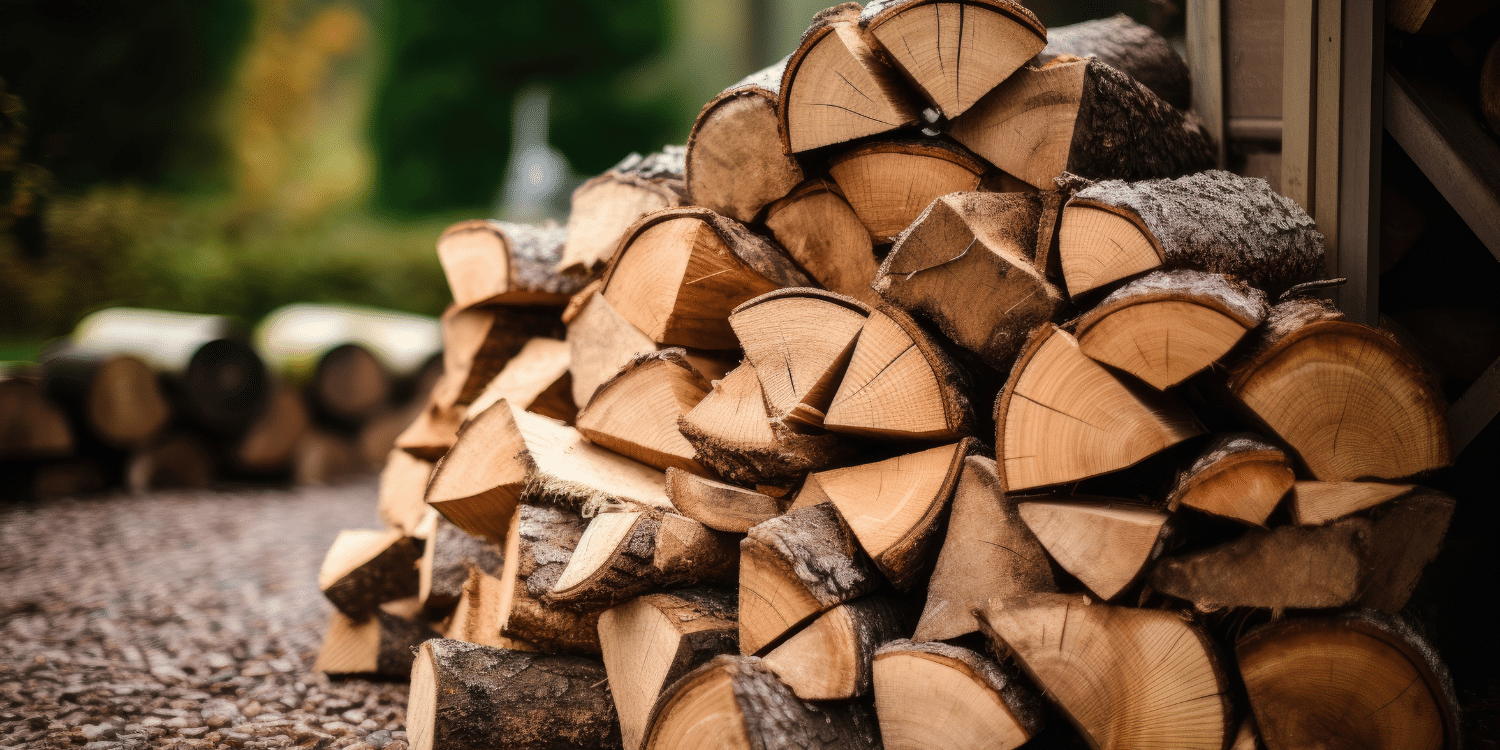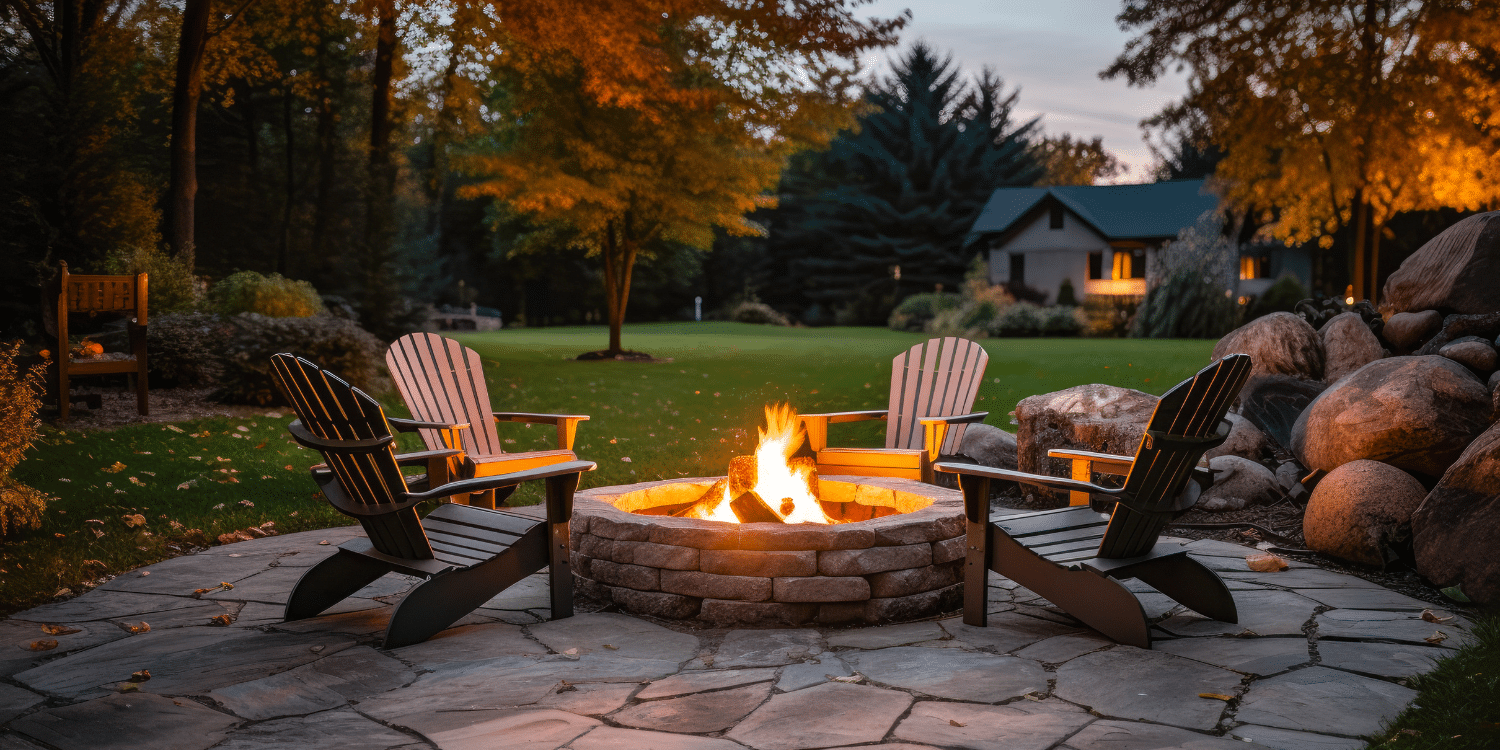hello world!

The ambiance of a roaring fire is something we all cherish. But did you know that the type of wood you use can make all the difference? With the right choice, you can enjoy a fire that burns longer, cleaner, and safer. In this firewood guide, we shed light on standout firewood types and offer essential safety tips to ensure a wonderful fire experience, inside and out.
The type of wood dictates burn duration, heat output, and smoke production. Hardwoods like oak and ash offer hotter and longer burns, making them ideal for warmth, while softer woods might burn faster, suitable for short, ambient fires.
Hardwoods such as ash, beech, and maple are excellent for indoor use. They burn hot and long, ensuring maximum heat with minimal residue.
For outdoor settings, oak, hickory, and cedar are great choices. They offer steady heat and resist wind factors, ensuring a consistent burn.
Avoid burning woods like driftwood, painted or varnished wood, and pressure-treated lumber, as they can release harmful fumes and create excessive creosote. Creosote is a thick, sticky substance that accumulates on chimney walls and can ignite, posing a significant fire hazard. Regularly burning inappropriate woods can increase the rate of creosote buildup, making chimney maintenance more frequent and crucial.
Wood moisture refers to the amount of water content present in firewood. The level of moisture in wood impacts how efficiently it burns. Properly dried or "seasoned" wood has reduced moisture content, which allows for a cleaner, hotter, and more efficient burn. In contrast, "green" or freshly cut wood has a higher moisture content, making it harder to ignite and leading to more smoke when burned.
Wood with over 20% moisture struggles to ignite, produces less heat, and emits more smoke, leading to inefficient burning and excessive water vapour.
Softwoods like pine and spruce burn faster and might be messier. However, when properly dried, they're suitable for short burns and kindling. Generally, we recommend these more for outdoor than indoor use.
The environmental impact of burning wood varies depending on the type and treatment of the wood. Some woods, especially those treated or processed, release harmful emissions when burned, contributing to air pollution.
On the other hand, burning natural, untreated hardwoods like oak, ash, and beech is generally more eco-friendly as they produce fewer emissions and burn hotter and cleaner. Plus, sourcing wood from sustainably managed forests can further reduce the environmental footprint, ensuring that the wood-burning process remains as sustainable and eco-conscious as possible. Always opt for well-seasoned wood, as this further reduces smoke and pollutants.
While salvaged wood can be economical, avoid burning treated materials and engineered goods, as they can be hazardous. As we've touched on, these hazards could be dangerous fumes or even unexpected explosions!

Adding aromatic woods like cedar, cherry, apple, or birch as kindling can lend a pleasant scent to your fire.
Yes, some woods inherently produce less smoke due to their dense structure and low resin content. Woods like apple, ash, and beech have these properties, making them burn more efficiently. This efficient combustion results in fewer emissions and a cleaner, less smoky burn.
For optimal safety, clean your chimney at least once a year, especially if you frequently burn wood. For best results, contact a professional!
Due to their denser cell structure, hardwoods generally produce more ash. Meanwhile, softwoods generally leave behind finer ash, which is easier to clean. Ash production also depends on specific species and whether bark or other plant parts are burned as well.
When burning firewood indoors, it's crucial to use fire-resistant floor pads to protect your flooring and maintain recommended clearances around fireplaces or stoves. Proper ventilation is essential, especially in enclosed spaces, and you should always have carbon monoxide and smoke alarms installed and regularly checked.
For outdoor burning, positioning your fire away from flammable materials and structures is vital. It's also good practice to monitor the flames constantly, use a fire ring or pit for containment, and always have a water source or fire extinguisher within arm's reach.
When shopping for firewood, first find a reputable supplier of well-seasoned wood, as it burns more efficiently and produces less creosote. Then, look for wood with a dark colour, cracked ends, and a hollow sound when knocked together. It should also be lightweight, indicating moisture has been lost.
Avoid green or wet wood; it's inefficient and smoky. If possible, inquire about the wood's source to ensure sustainability. Additionally, a reputable supplier will provide consistent quality and proper storage recommendations if requested!
Choosing the right firewood can amplify the experience, whether you're cozying up indoors or gathering around an outdoor pit. At Hamilton Builders' Supply, we prioritize not just the quality of burn but also the safety and eco-friendliness of our offerings. Drop by and let us guide you to the best choices for your burning needs. Visit us today!